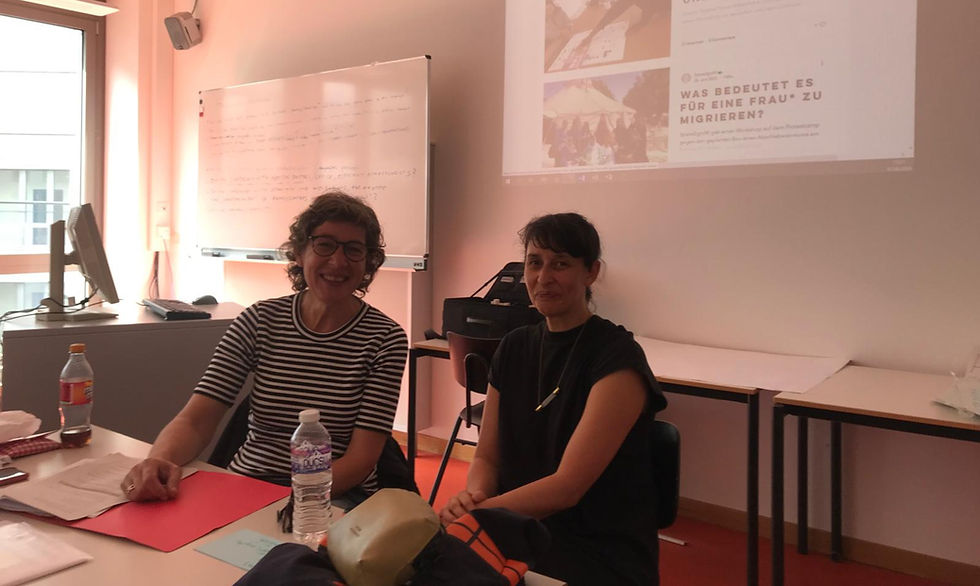Train the Trainer: Abortion for migrants in Germany
- Space2groW
- Jun 19, 2024
- 2 min read
One of the campaigns in which most feminist groups and organisations are involved is the campaign for the decriminalisation of abortion in Germany. Essentially, it calls for the abolition of the criminal code paragraph 218, according to which all persons involved in an abortion can be penalised.
An exception in the penal code appears to partially decriminalise abortion: Paragraph 218a. This allows women* to have an abortion if they follow a certain procedure, which includes attending a counselling session. During this counselling session, they are asked about their reasons for terminating the pregnancy. Only then is an abortion possible.
This law does not prevent women* from having an abortion, but it has made the procedure complicated, emotionally exhausting and costly and riddled it with obstacles that particularly affect migrants*.

In the training programme for migrants led by Lail, we talked about our doubts and experiences. It is our responsibility to understand the importance of this topic for migrants and to actively engage in dialogue with each other.
What obstacles do migrants face? How do our cultural differences affect our decision to have an abortion? How can we counsel women* who want to have an abortion? These are just some of the questions that came up during the workshop.
Key to this discussion was understanding the lack of information about the actual process involved in deciding to have an abortion. Not only in terms of the physical consequences of an abortion, but also emotionally.
Lail explained the emotional impact of having a chemical abortion at home. With a chemical abortion, the woman* sees her cells die - similar to menstruation, only more intense.
With the surgical method, the woman* does not have to experience the bleeding, but she is confronted with other consequences of the operation and higher costs of the procedure.
As Lail explained to us, doctors often do not address the trauma of the patient and there is no effective aftercare for women*. No one tells them, for example, that the effects of pregnancy can last up to a year after the abortion, with all the emotional consequences this entails.
Even today, women* who decide to have an abortion continue to be penalised by society.

These factors are exacerbated when migrants are involved, for example when their religion, culture and language are not respected. If the information is not given to them appropriately and - for once, why not - in a loving manner. Many migrants have abortions without their families being present, meaning they are completely alone with this issue and are already struggling with numerous other issues, such as their right to residency. It is important to take all this into account in order to carry out workshops, counselling and support in a way that does justice to the reality of migrants.
As Space2groW, we want to empower those people and not replicate a model that defines migrant and refugee women* as people to be pitied. We want to make it clear that one of the bravest things a person can do is to migrate!
With this in mind, we want to participate in all campaigns to decriminalise abortion - for empowered migrants.




Comments